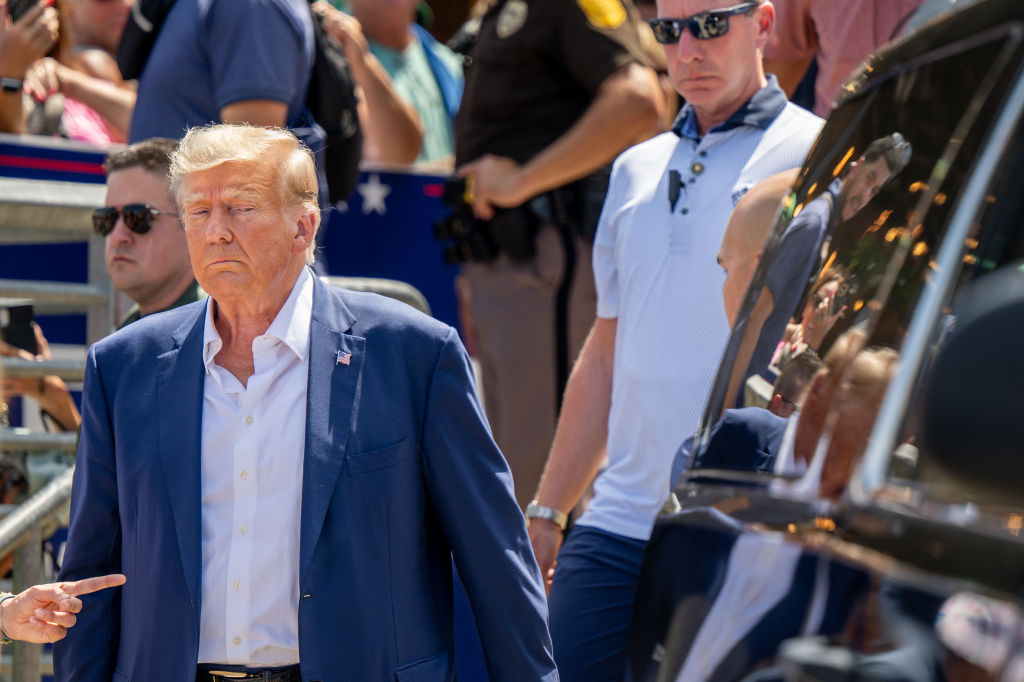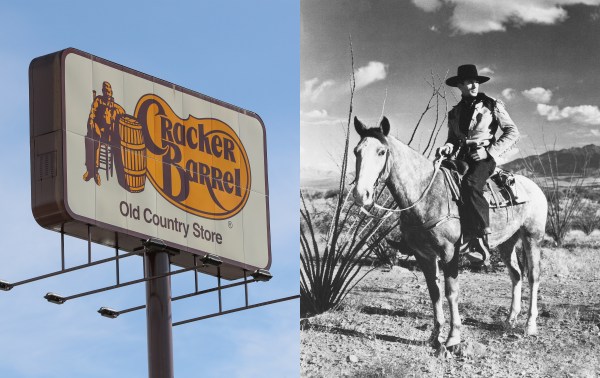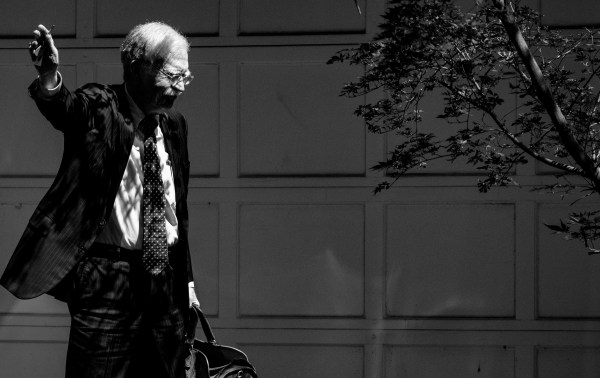As we slog on into a third consecutive presidential campaign dominated by claims and counterclaims of criminal conduct, let’s consider the much-embroidered story of Treasury Agent Eliot Ness and his squad of Untouchables.
That’s the one about how they found a way to bring down a murderous villain not for murder and villainy, but for tax evasion.
Because of the massive corruption in the city of Chicago in the 1920s, Al Capone was protected from prosecution for the killings that were the foundation of his bootlegging business.
In the Hollywood version, Ness and the Untouchables find a loophole to bring down Capone and his gang in 1931 and bring relief to the city.
The truth is that the Chicago Outfit that Capone had led continued to dominate the city in his absence, and that while the repeal of Prohibition laws two years after his imprisonment did reduce the profitability of the underworld in Chicago, the Outfit was going strong three decades later and the city was still a bastion of crime and political corruption.
But we love the story of the crusading lawman who breaks the tyranny of lawlessness. Ness tells us that story in ways that flatter Americans’ idea of ourselves. We would do the right thing if only a brave man with a badge would bring the law to our side.
The reality of corruption is a lot like people’s complaints about the ills of social media for our discourse: The problem in what we see is not as much the distortion of public sentiment, but in its faithfulness to reality. Widespread public indifference in Chicago to—and enthusiastic personal violations of—the federal laws against Capone’s trade in illegal liquor is what made his business successful. As he was fond of telling reporters: “All I do is satisfy a public demand.”
The endemic corruption that afflicts our politics today is not due to a lack of law enforcement nearly as much as it is a reflection of an electorate that has lost its taste for virtue.
There are many reasons why politicians wouldn’t engage in corruption and unsavory practices. One is certainly the law, and the threat of imprisonment. But much of what is wrong is not illegal. Lying to a federal agent is a crime, but lying to voters is so normal now that it scarcely gains our notice. And that’s because the previously presumed penalty for public dishonesty was political. Fear of voters has done far more to limit corruption than fear of a jail cell.
But what if voters don’t care? What if a felony conviction would not be enough to persuade a majority of the members of a major party to abandon its presidential frontrunner? What if the leaders of the other party were confident that voters would not care about the obvious corruption of the sitting president’s son?
In a nation that is both evenly divided and blind drunk on partisanship, the electorate has become an unreliable custodian of public virtue. Thus excused from pragmatic decency, it falls to the individual character of our leaders and the norms and traditions of the institutions in which they serve. We all know how that’s going.
Donald Trump has most spectacularly exploited this acceptance and even celebration of corruption, but we have to bear in mind that we did not arrive here by accident or all at once. We have been slowly sinking into the mire for decades.
Recall the public defense in the Iran-Contra arms-for-hostages scandal: It was illegal and unconstitutional, but necessary. Or then-Vice President Al Gore’s 1997 rejoinder to the obvious corruption in his fundraising activities: There was “no controlling legal authority” that could punish him.
Bill Clinton, though, was the Vasco De Gama of the new frontier of corruption. In his second term, the then-president lied and lied and lied to avoid any legal or political consequences for his abuses of power. And when voters in the 1998 midterms punished the House Republicans for their nakedly political pursuit rather than Clinton’s party for the president’s misconduct, the message to Washington was clear: Corruption was a liability only if you didn’t know how to spin it.
Democrats had been willing to trade their honor to protect Clinton not in exchange for policies or ideology, but plain partisanship. And it paid off. The Senate Republicans who had told Richard Nixon to pack it in 25 years earlier over similarly grubby behavior, and Nixon’s willingness to leave, looked quaint in comparison.
Without the political consequences and in an atmosphere of reflexive anti-establishment populism, what’s left? The law alone.
Clinton’s wife, through her family foundation, offered an easy way for those seeking favor with someone who was a senator, then secretary of state, and the leading contender to be the next president. Hundreds of millions of dollars poured in from around the globe, but there was no controlling legal authority for that one, either.
And when it came to her mishandling of classified documents—emails stored with greater interest in her own secrecy than that of the nation—the answer was that unless she was convicted of a crime, then she was innocent of wrongdoing. “No smoking gun,” they said through air thick with cordite.
Trump’s rank thuggery in trying to steal a second term by disrupting the peaceful transfer of power in 2021 was an intensification of these tactics, not a departure. An approach that had been used for personal and political gain was turned on the republic itself. And to their deeper shame and at far higher stakes, Republicans in the Senate followed the example of Democrats a generation before and excused the inexcusable for the sake of partisanship.
Indeed, the Republican primary electorate was policing against virtue, threatening consequences for any members of the Senate who tried to keep his or her honor intact. In two generations our politics took us from pragmatic virtue to mandatory vice.
But even as Democrats bewailed the corroded morals of the other party, few could be bothered to denounce the obvious corruption of Hunter Biden. Even in the light most favorable to the defendant, selling fake influence to foreign powers seeking to influence American policy is wicked. But President Biden insisted no wrong had been done, and his party went along, again, for the ride.
“I find it hard to imagine that anyone concerned about political corruption would turn to Donald Trump to address the problem of political corruption,” Rep. Jamie Raskin of Maryland, the ranking Democrat on the House Oversight Committee, told the New York Times.
And as Trump steamrolls his way to a third nomination and perhaps a return to power, we face a situation in which voters turn to no one to address the problem of political corruption.
Capone did not reign against the wishes of Chicago’s masses. His rule was bolstered by their love of illicit booze and tolerance for corruption. And after he was gone, the corruption marched on.
Only voters can really break the spell. Without political consequences, the law is not enough to protect our virtue. If America’s partisan hatreds have turned us into such moral imbeciles that we can see corruption only in those we despise, what follows Trump will make him look like Eliot Ness in comparison.







Please note that we at The Dispatch hold ourselves, our work, and our commenters to a higher standard than other places on the internet. We welcome comments that foster genuine debate or discussion—including comments critical of us or our work—but responses that include ad hominem attacks on fellow Dispatch members or are intended to stoke fear and anger may be moderated.
With your membership, you only have the ability to comment on The Morning Dispatch articles. Consider upgrading to join the conversation everywhere.